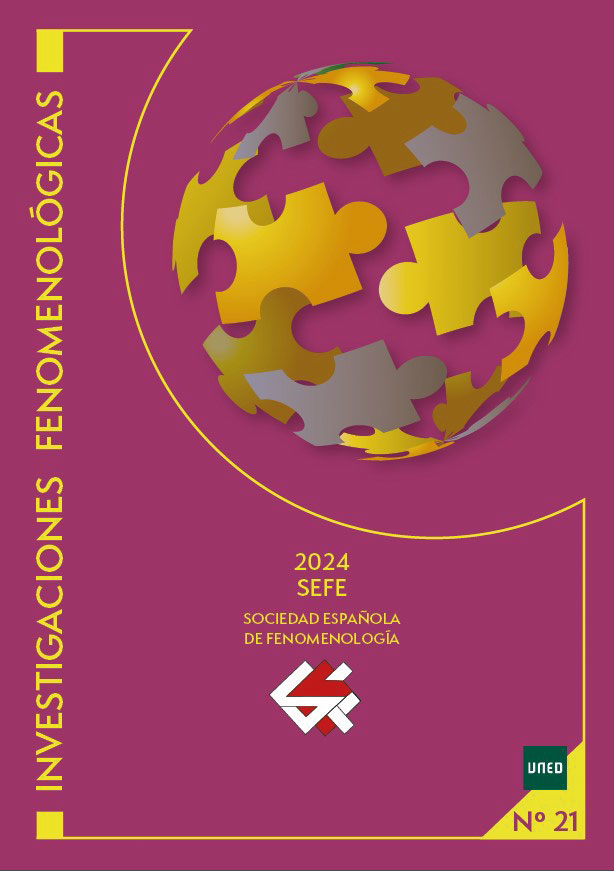Phenomenology of Tragedy in Aristotle
DOI:
https://doi.org/10.5944/rif.21.2024.41984Keywords:
Tragedy, phenomenology, Mimesis, Action, Thought, SensitivityAbstract
This article investigates Greek tragedy as a poetic and philosophical phenomenon. The universality of Greek tragedy raises questions at multiple levels that are methodologically articulated thanks to the tragic logos, the practical power of the intentional actions of its characters and the catharsis that identification with these characters produces. Tragic Poetry is a space for meeting and communication. These investigation reveals connections between Husserl and Merleau-Ponty and poetic tragedy. These is how through their link with the spirit of a universal culture, through their reciprocity between characters and the community of people, through their value in creating ideas and their ability to transform and open horizons towards the spiritual and human world, as Husserl proposes in his work "Invitation to Phenomenology".
Downloads
Downloads
Published
Versions
- 2024-12-29 (3)
- 2024-12-29 (2)
- 2024-12-29 (1)
How to Cite
Issue
Section
License
Copyright (c) 2024 Investigaciones Fenomenológicas

This work is licensed under a Creative Commons Attribution 4.0 International License.
![]()
Reconocimiento (by): Se permite cualquier explotación de la obra, incluyendo una finalidad comercial, así como la creación de obras derivadas, la distribución de las cuales también está permitida sin ninguna restricción.






